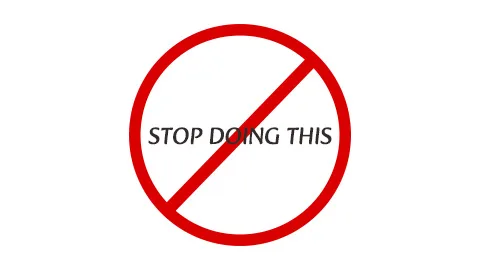
Want to Get More Done? Stop Doing This One Thing
The science-backed strategies for focus, productivity, and prioritizing what truly matters in your life
Let’s face it—we live in a world that glorifies being busy. But here’s the hard truth: being busy doesn’t always mean being productive. In fact, the more we try to cram into our day, the less effective we become. So, how can we shift from doing more to doing what actually matters? That’s where the focus formula comes in.
This isn’t about working harder. It’s about working smarter—using behavioural strategies and mindset shifts to cut through the noise, prioritize effectively, and achieve more with less effort.
Why Doing Less Leads to More
The idea of doing less to achieve more isn’t just a catchy phrase—it’s rooted in science. One key principle is cognitive load theory, which explains that our brains can only handle a limited amount of information at once. When we try to multitask or overload ourselves, our efficiency plummets, and we make more mistakes.
For example, a study conducted at Stanford University found that heavy multitaskers performed worse on cognitive tasks compared to those who focused on one thing at a time. The constant task-switching not only reduced their attention span but also impaired their ability to filter irrelevant information.
Another concept is the Pareto Principle, or the 80/20 rule. It states that 80% of our results come from just 20% of our efforts. Think about that: most of what you do in a day might not even matter. The trick is identifying that crucial 20% and doubling down on it.
The Mindset Shift: From “Busy” to “Focused”
To embrace the focus formula, you need to shift your mindset. Start by challenging the belief that doing more equals being better. Instead, ask yourself:
- What tasks or activities truly move the needle in my life or work?
- What am I doing out of habit, obligation, or fear of saying no?
By focusing on what’s essential, you free up time and mental energy for the things that matter most.
3 Behavioural Strategies for Prioritizing Effectively
1. Use the Eisenhower Matrix
This simple tool helps you sort tasks into four categories:
- Urgent and Important: Do these first.
- Important but Not Urgent: Schedule these for later.
- Urgent but Not Important: Delegate or automate these.
- Neither Urgent nor Important: Eliminate these altogether.
By categorizing your tasks, you can stop wasting time on what’s not essential and focus on high-impact activities.
2. Batch Similar Tasks Together
Switching between tasks drains your brain’s energy. Instead, group similar tasks—like responding to emails or making phone calls—and tackle them in dedicated blocks of time. This minimizes context switching and keeps your brain in “flow.”
3. Set “Focus Boundaries”
Distractions are productivity’s worst enemy. Studies show it takes an average of 23 minutes to refocus after an interruption. Protect your focus by:
- Turning off notifications.
- Setting clear work hours and breaks.
- Communicating your boundaries to others (e.g., “I’m unavailable from 9-11 AM for deep work”).
The Science of Saying No
Saying no can feel uncomfortable, but it’s crucial for protecting your time and energy. Research shows that when we say yes to things that don’t align with our priorities, we experience higher stress and lower satisfaction.
In fact, a study published in the Journal of Consumer Research found that people who frame their refusal as “I don’t” rather than “I can’t” are more successful at sticking to their boundaries. For instance, saying “I don’t take on extra projects during weekends” feels more definitive and empowering than “I can’t take on extra projects.”
Why Focus Matters More Than Ever
In today’s digital age, where notifications, emails, and social media demand constant attention, staying focused has become a superpower. Research from the University of California, Irvine, found that it takes workers an average of 25 minutes to return to their original task after being interrupted. This constant fragmentation not only lowers productivity but also increases mental fatigue.
When you eliminate distractions and focus on fewer, high-impact activities, you’ll find that your output improves dramatically—and so does your sense of accomplishment.
When you’re looking to improve focus without feeling overwhelmed, it’s important to remember that building healthy habits for a more balanced life starts with small changes. By incorporating practical strategies for better mental clarity, you can find simple ways to stay present in the moment. Achieving your goals without burnout requires setting realistic expectations and taking actionable steps to reduce stress and increase productivity.
It’s all about maintaining focus during challenging tasks and building confidence through small wins and consistency. Creating a daily routine for better well-being helps you feel more in control and improves your emotional resilience in everyday life. Learning to prioritize what really matters in life will keep you aligned with your goals. And in a distracted world, staying focused is essential—especially when you’re chasing your dreams with clarity and purpose.




